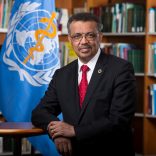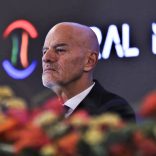Mozambique: Cholera outbreak declared again in Moma district
New fees to license and register Media companies; accreditation of national and foreign journalists – Mozambique

On the eve of two elections that promise to be “challenging” for Frelimo, the Nyusi government is tightening its grip on independent media and trying to inhibit the presence of foreign journalists.
@Verdade discovered that, in addition to the creation of one (more) social communication regulator in Mozambique, the government has increased or created several licensing and registration fees for radio, television and print press services [which includes online platforms and news bulletins, Savana reports], and has further “astronomically” increased the cost of accrediting foreign journalists.
During a meeting held last week at a luxury tourist resort on Xai-Xai beach, top officials of the Mozambican State Information Office (GABINFO), the Mozambique Information Agency, the Bureau of Public Information, the Photographic Training Centre, the School of Journalism, the Institute of Social Communication, Radio Mozambique and Television of Mozambique agreed on the need to create a body that regulates social communication in our country due to an alleged “unrestrained behaviour by the Mozambican press, in contempt of individual rights and freedoms”.
But if in the process of creating the “regulator”, which would be a return to the times of single-party when there was a Ministry of Information in Mozambique, a lot of water still needs to flow under the bridge, @ Verdade discovered that the Council of Ministers approved on 12 June last , at its 19th Ordinary Session, one Decree No. 40/2018, which “aims to establish a legal regime of fees to be charged for registration, licensing, renewal, endorsements and advertising inserts by the press, radio and television, including digital platforms, as well as in the act of accreditation and credentialing of national and foreign journalists, correspondents, and self-employed collaborators”.
This will result in astronomical costs for radio, television or publication licensing, plus annual operation fees corresponding to 6 percent of the amount charged at the time of licensing.

The new legislation practically bars the presence of international correspondents in Mozambique.
At a time when the country is preparing to migrate to digital technology that will minimise the costs of radio or television transmission, with operators no longer having to invest in numerous transmitters to reach out across Mozambique’s vast extent, the government has dramatically increased the costs of renewing licenses for radio and television services, whether national, regional, provincial or community.

Current Mozambican media companies now need to make endorsements to their license or registrations, at a cost of between two and four million meticais.

In addition to hindering the appearance of new media and stifling those that already exist, the decree, which comes into force at the end of August, will restrain Mozambican journalists who work as foreign media correspondents, charging them for accreditation more than many of bill in a year.
In addition, the new fee of 500,000 thousand meticais for international correspondents practical bars their entry into the country.

The Southern African Media Institute (MISA) Mozambique “learned of the decree in question and was shocked by its content.”
“By imposing exaggerated fees for the functioning of media in the country, we consider this decree a vile attempt to curtail the freedom of the press and expression enshrined in the Constitution of the Republic. With this action, the Mozambican government is demonstrating its discomfort towards pluralism and diversity in the Press,” said Fernando Gonçalves, the president of MISA Mozambique.













Leave a Reply
Be the First to Comment!
You must be logged in to post a comment.
You must be logged in to post a comment.